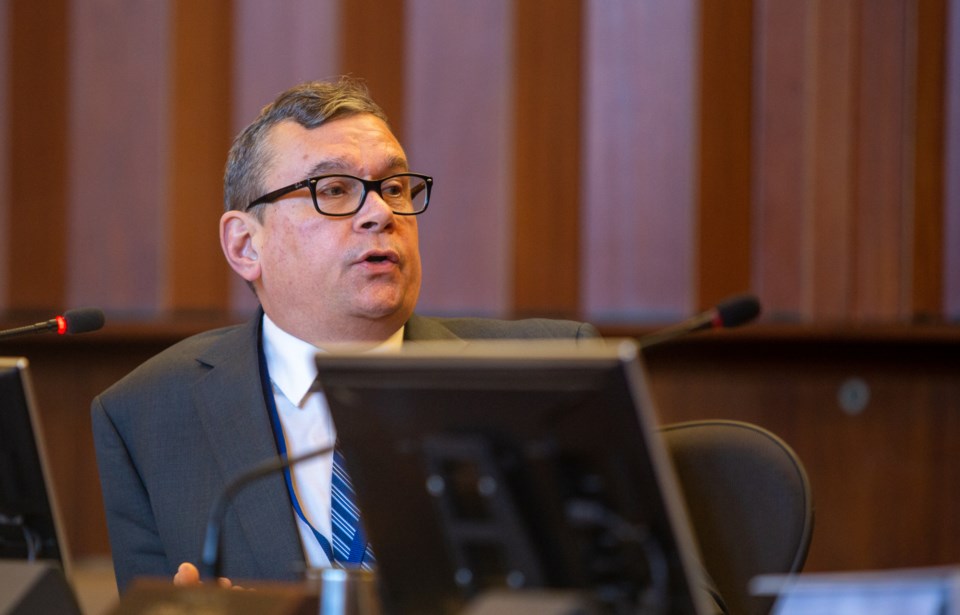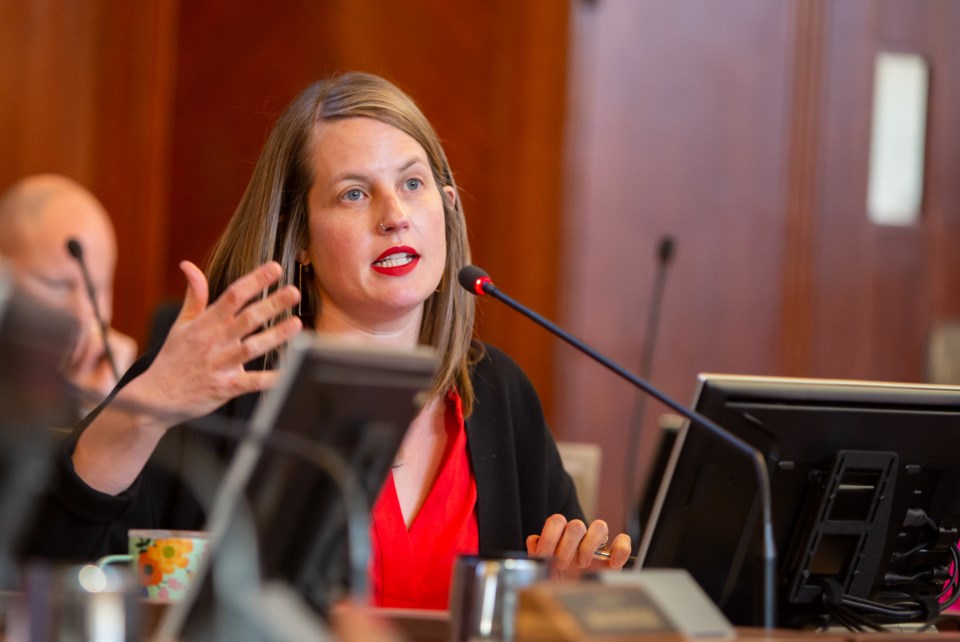A document created to act as a guide for City of Â鶹´«Ã½Ó³»staff to centre reconciliation, justice and equity in all work done to fight climate change was met with controversy during debate at city hall Wednesday.
The 40-page was deemed too “prescriptive” by ABC Â鶹´«Ã½Ó³»Coun. Mike Klassen, who successfully amended — and ultimately rejected — staff’s recommendation to use the document as a guide.
Instead, Klassen said the charter should be used as a resource for climate change work.
“What we're trying to accomplish here is being able to bring this work as a resource for work going forward for people who are working here on a whole range of issues around and including the climate emergency action plan,” Klassen said.
He pointed out the city already has a chief equity officer and an existing “very robust” equity framework strategy. The officer and the framework should “complement and inform the work of our team and our staff in terms of climate,” he said.
“This amendment here allows us to take this work, and have it is a tool — one of many that will allow us to make sure that we produce very excellent policy and good direction with our staff,” said Klassen, whose amendment was supported by his seven fellow ABC colleagues, including Mayor Ken Sim.

'It's insulting'
The move by ABC Â鶹´«Ã½Ó³»was met with disappointment and confusion by OneCity Coun. Christine Boyle and Green Party councillors Adriane Carr and Pete Fry. Boyle and Carr accused Klassen of “watering down” the charter and its intent.
“I am frustrated and a bit speechless about why we would kind of cut the knees out of it at the last minute here,” Boyle said. “I think — quite frankly — that it's insulting and I'm disappointed.”
Carr was also disappointed that staff’s recommendation to have them report back on progress related to the charter in the climate emergency action plan annual report and include an analysis of equity impacts in climate-related reports was rejected.
“I have a very hard time with this, and I would like councillors to really think about: do you really want to not know what the impacts are of the work of staff in applying an equity lens in our climate work?” she said.
Fry said ABC’s move undermines the work of the 16 people from the community who drafted the climate justice charter. The document is rooted in “lived experience of folks, and I think it's a mistake to dismiss that lived experience," he said.
“This is a really unfortunate moment, and also unfortunate that we received [the amendment] so late and didn't have an opportunity to ask some of the speakers and folks who were actually involved in this work — and spent years working on this document — to see what they might have had to say about the suggestion that we should basically receive [the charter] for information and not use this work beyond that,” Fry said.
'It sets a horrible precedent'
Adriana Laurent, an equity and inclusion strategist, was one of the 16 members of the “climate equity working group.”
Laurent told council before Klassen introduced his amendment that the charter brings together climate science, Indigenous knowledge systems, with community-driven ideas to guide the city and their climate work.
“And when you pair that with the existing climate emergency action plan, it's a beautiful combination,” said Laurent, who later took to Twitter after learning of ABC’s decision not to approve staff’s recommendation for the charter to be used as a guide.
Laurent said the charter took three years to finalize and it shouldn’t be “watered down.”
“It was built by and for community,” Laurent wrote. “It sets a horrible precedent for any future work done through community members for council to know it can get cut down at the very last minute.”
The charter prioritizes communities disproportionately impacted by climate change, some of whom include Indigenous, Black and other racialized peoples, migrants and refugees, people with limited English, sex workers, substance users, people with disabilities, women and girls and 2SLGBTQIA+ people.
“In some cases, the climate change impacts a community faces are direct, such as the disproportionate health impacts of extreme heat, storms, flooding, and wildfire smoke on those living or working outside; experiencing homelessness; people with existing health conditions; pregnant people; people with disabilities/disabled people; fat people; elders; and children and youth,” the charter said.
Trees planted in Downtown Eastside
A staff report that went before council Wednesday gave examples of climate justice.
They included planting trees in under-served neighbourhoods such as the Downtown Eastside that lack forest canopy to reduce urban heat effects that negatively impact residents.
“Climate justice can also look like centring Indigenous values, knowledge and experiences of being on the land in floodplain areas and creating coastal adaptation concepts that reflect Indigenous technologies and perspectives in a way that creates safe and welcoming communities for Indigenous peoples and settlers alike,” the report said.
In his closing remarks, Klassen said his amendment shouldn’t be viewed as “watering down” the charter, or dismissing it or the work done by the people to create it.
“Nothing of the sort is the case here,” he said. “I fully acknowledge and I'm grateful for the work done by all people to try and provide their lived experience and their ideas that we can embody in the work here.”





